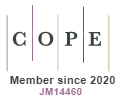Aprendizagem baseada em projetos no ensino de Ciências com enfoque na aprendizagem colaborativa
Project-based learning in science teaching with a focus on collaborative learning
DOI:
https://doi.org/10.5585/45.2023.24026Abstract
This paper presents some results from a Master's research in Science Teaching, which was designed following the steps of Action Research and uses the Project-Based Learning (PBL) methodology applied with the principles of Collaborative Learning. The overall objective is to investigate the influence of PBL combined with student/student, student/teacher, student/digital technologies collaboration on students' conceptual learning. The project was applied to the ninth grade of a public school with the participation of the researcher in partnership with the class teacher. Based on the reflections about the results, it was concluded, among many aspects, that the researcher/teacher partnership is essential for the good progress of the project. In addition, a project involving PBL requires time availability. As for digital technologies, these are efficient tools to promote collaboration among students, but they require pedagogical planning on the part of the teacher who intends to use them.
Downloads
References
ALZATE, T. Evolución conceptual desde una perspectiva multidimensional: Aplicación al concepto de respiración. 2001. 328 f. Tesis (Doctoral Didáctica de la Matemática y de las Ciencias experimentales) - Universidad Autónoma de Barcelona, Bellaterra, 2001. Disponível em: https://www.tdx.cat/bitstream/handle/10803/4688/oeta1de3.pdf?sequence=1 Acesso em 28 nov. 2022.
AUSUBEL, D. Educational psychology: a cognitive view. Nova York: Holt, Rinehart and Winston, 1968.
BARBOSA, Ana Cristina Lima Santos. Posturas individuais inerentes às dinâmicas colaborativas no ensino online. Congresso Internacional de Educação a Distância, XII CREAD MERCOSUR/SUL Rio de Janeiro, 2007. Disponível em: http://www.anpae.org.br/congressos_antigos/simposio2009/20.pdf. Acesso em 01 fev. 2023
BARDIN, L. Análise de conteúdo. Lisboa: Edições 70, 1977.
BENDER, W. N. Aprendizagem baseada em projetos: educação diferenciada para o século XXI. v.1 Penso Editora. Porto Alegre, 2014.
BOXTEL, C. V. Collaborative learning tasks and the elaboration of conceptual knowledge. Learning and instruction, v. 10, n. 4, p. 311-330, 2000.
BRASIL. Ministério da Educação, Secretaria de Educação Básica. Base Nacional Comum Curricular. Brasília, 2018. Disponível em: http://basenacionalcomum.mec.gov.br/abase/ Acesso em 10 mai. 2021.
DIAS, L. Formação continuada para professores da área de ciências da natureza no Pacto Nacional pelo Fortalecimento do Ensino Médio/Unipampa : "o que se mostra" da valorização pela formação? Tese (Doutorado em Educação). Universidade Federal do Rio Grande- UFRGS. Porto Alegre, 2018. Disponível em: https://www.lume.ufrgs.br/handle/10183/187454 Acesso em 05 mai. 2023.
DILLENBOURG, P. What do you mean by collaborative learning?. P. Dillenbourg. Collaborative-learning: Cognitive and Computational Approaches., Oxford: Elsevier, pp.1-19, 1999.
GIL, Antonio Carlos et al. Como elaborar projetos de pesquisa. São Paulo: Atlas, 2002
JOHNSON, D.; JOHNSON, R. T. Learning together & alone: cooperative, competitive and individualistic learning. New Jersey: Pretence-Hall, 1987.
MORAN, J. A educação que desejamos: novos desafios e como chegar lá. 2. ed. Campinas, SP: Papirus, 2007. 174p
MORAN, J. Contribuições das tecnologias para a transformação da educação. Revista Com Censo. V.5; n.3. Ago 2018. Disponível em: http://www2.eca.usp.br/moran/?page_id=20. Acesso em: 14 dez 2021
MOREIRA, M. A.; CABALERO, MC; RODRÍGUEZ, ML Aprendizagem significativa: un concepto subyacente. Actas del encuentro sobre el aprendizaje internacional , v. 19, n. 44, pág. 1-16, 1997.
MOREIRA, M. A. Teorias de aprendizagem. São Paulo: Editora pedagógica e universitária, 1999.
MORETTO, V. P. Construtivismo: a produção do conhecimento em aula. Rio de Janeiro: DP&A Editora, 2000.
MORTIMER, E. Linguagem e Formação de Conceitos no Ensino de Ciências. 1º ed. UFMG Editora. Belo Horizonte, 2000.
PIAGET, J. Psicologia e pedagogia. Editora Forense. Rio de Janeiro, 1972.
PIAGET, J. O desenvolvimento do pensamento: equilibração das estruturas cognitivas. Lisboa: Dom Quixote, 1977
RIO GRANDE DO SUL. Secretaria de Estado da Educação, Departamento Pedagógico. Referencial Curricular Gaúcho Ciências da Natureza 2018. V1. Disponível em: https://portal.educacao.rs.gov.br/Portals/1/Files/1530.pdf. Acesso em: 15 set 2021.
SANKARAN, S. Methodology for an organizational action research thesis. Action Research International, 2001. Open Publications of UTS Scholars. Disponível em: https://opus.lib.uts.edu.au/handle/10453/9830. Acesso em: 22 set. 2022
SILVA, L. Aprendizagem baseada em projetos: possibilidades e desafios em uma proposta para o ensino de ciências. 131 f.: il. 2023. Dissertação (Mestrado Acadêmico em Ensino) – Universidade Federal do Pampa, Campus Bagé, Bagé, 2023. Disponível em: https://dspace.unipampa.edu.br/handle/riu/8136 Acesso em 05 mai. 2023.
SILVA, M. Sala de aula interativa: a educação presencial e a distância em sintonia com a era digital e com a cidadania. Rio de Janeiro: Quartec, 2001.
VYGOTSKY, L. S. Imagination and creativity in the adolescent. Soviet Psychology, v. 29, n. 1, p. 73-88, 1991. Disponível em: https://www.tandfonline.com/doi/abs/10.2753/RPO1061-0405290173 Acesso em 28 nov. 2022
Downloads
Published
How to Cite
Issue
Section
License
Copyright (c) 2023 Dialogia

This work is licensed under a Creative Commons Attribution-NonCommercial-ShareAlike 4.0 International License.
- Abstract 797
- pdf (Português (Brasil)) 651







